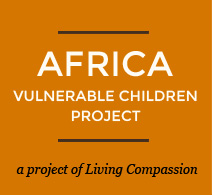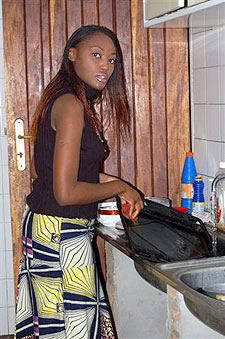 Our new friend, Agness, the young cook from the guesthouse at St. Joseph’s, joined us for her first Zen sitting meditation clinic this morning. We had given her a copy of The Key the day before and after reading it overnight she eagerly asked if there were any practices she could do after we leave—a perfect invitation to learn how to sit. She is currently reading There Is Nothing Wrong With You and we are very interested to see if the book’s message about self-hate translates culturally from our American perspective into a Zambian one.
Our new friend, Agness, the young cook from the guesthouse at St. Joseph’s, joined us for her first Zen sitting meditation clinic this morning. We had given her a copy of The Key the day before and after reading it overnight she eagerly asked if there were any practices she could do after we leave—a perfect invitation to learn how to sit. She is currently reading There Is Nothing Wrong With You and we are very interested to see if the book’s message about self-hate translates culturally from our American perspective into a Zambian one.
The morning was our working visit to Masala Primary School. Upon arriving, we were greeted by a sea of school children and then ushered into the principal’s office. Inside, we met a group of women from Back to Back, a program that encourages a mutually beneficial relationship between women in the community and students in the school. The women teach the girls how to knit and crochet while the students teach the women basic school education including grammar, math, and HIV/AIDS awareness. Whatever they make with the children is sold at the market and the money is put back into buying materials for the project. Yet again, another example of heroic women volunteers making a difference in the community.
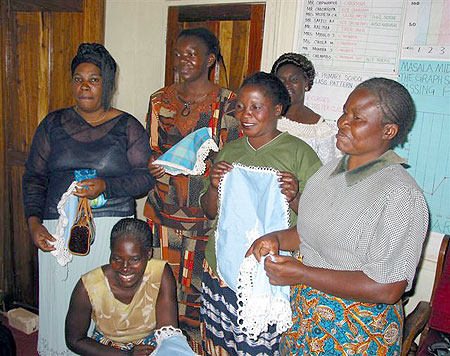
Women of Back to Back
Mrs. Mupeta, the principal, then announced that entertainment had been arranged for us. This would certainly explain why all the children from every classroom came pouring out into the courtyard. Traditional Zambian drumming, singing, and dancing ensued. The visitors were invited to participate.
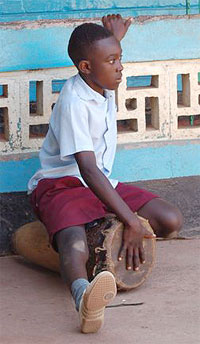
The finale was a special performance by Abigail, a former student whose solo performance captivated the Africa Team last year. She is now in the 8th grade at Masala Secondary School, but Mrs. Mupeta requested that she return to sing for us. After singing the Zambian song that had marked her debut for us in 2005, she then surprised us with a few rounds of “How Could Anyone”, the song by Libby Roderick we taught the school choir last year for the CNN special.
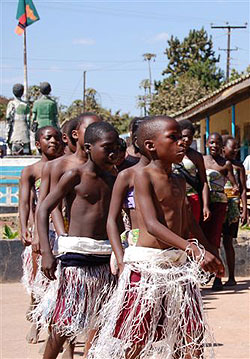
After the entertainment, we split into three teams: Team 1 met with Mrs. Mupeta and Samuel, the director of school maintenance, to discuss the projects at Masala. The meeting revealed the dire situation the school is in. As we discussed the possibilities of building a water tank and repairing one of the ablution blocks, we learned that there is no water coming into the school and that any water they could obtain would be contaminated. Team 2 consisted of the photographers who walked around the school and into classrooms taking hundreds of pictures of the children. Team 3 spent time in various classrooms grades 5-7 to work on art projects.
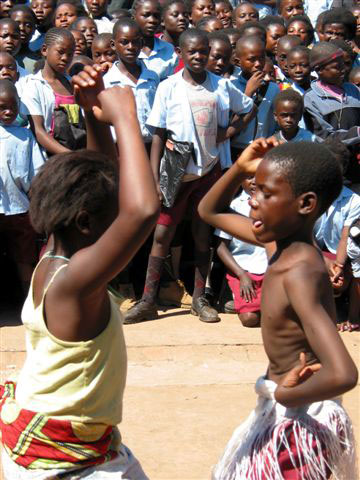
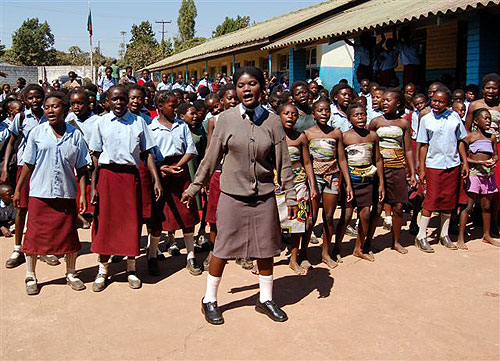
Abigail
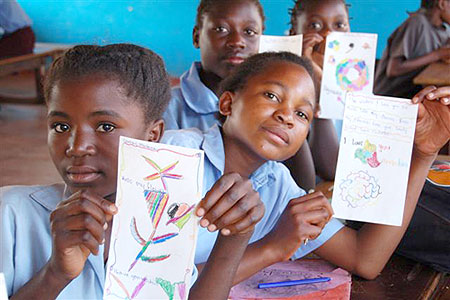
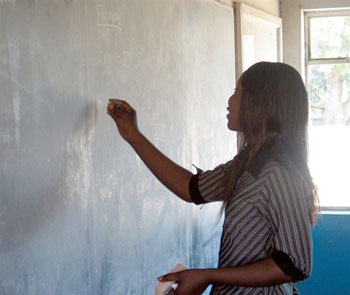
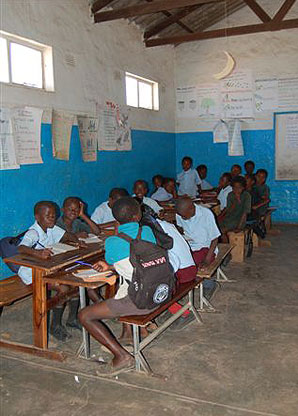
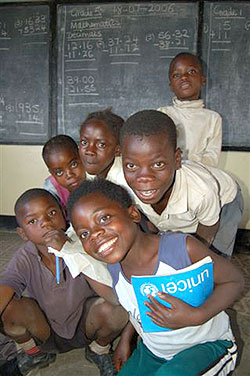
Street kids trading attendance for lunch
Later as we pulled into the guesthouse driveway, Martin, the tailor was patiently waiting for us. We met with him to give him the chitenge for the sewing projects. A team went with Martin to look for placemat material and drop off the chitenge at his home where he does his tailoring work without any electricity. Ignatius noted that Martin is now an instant celebrity in his neighborhood for having two musungus visit his house.
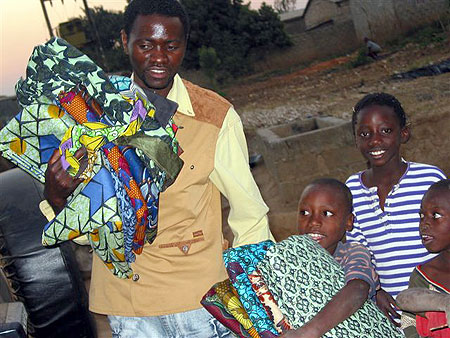
Martin unloading chitenge
The other team paid a visit to our local and daily internet hotspot, the Savoy.
It was the one night we really needed to get some sleep in preparation for the 2am Open Air “Live from Zambia” show, but we could not resist eating Agness’ beautiful, freshly-baked chocolate cake with mounds of vanilla ice cream.
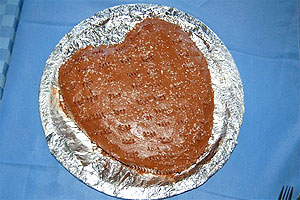
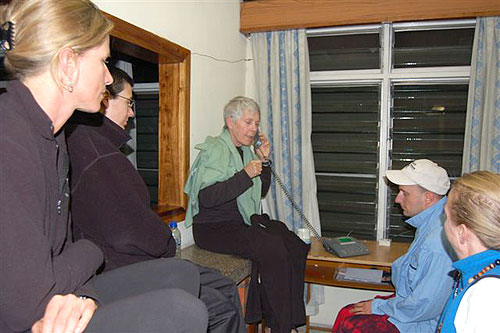 (
(
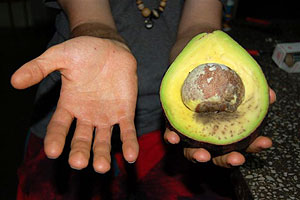
P.S. This is one of the avocados we’ve been enjoying—one of the highlights of life in Ndola.
